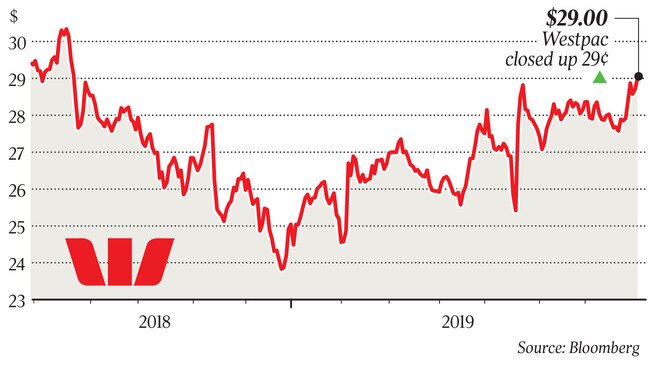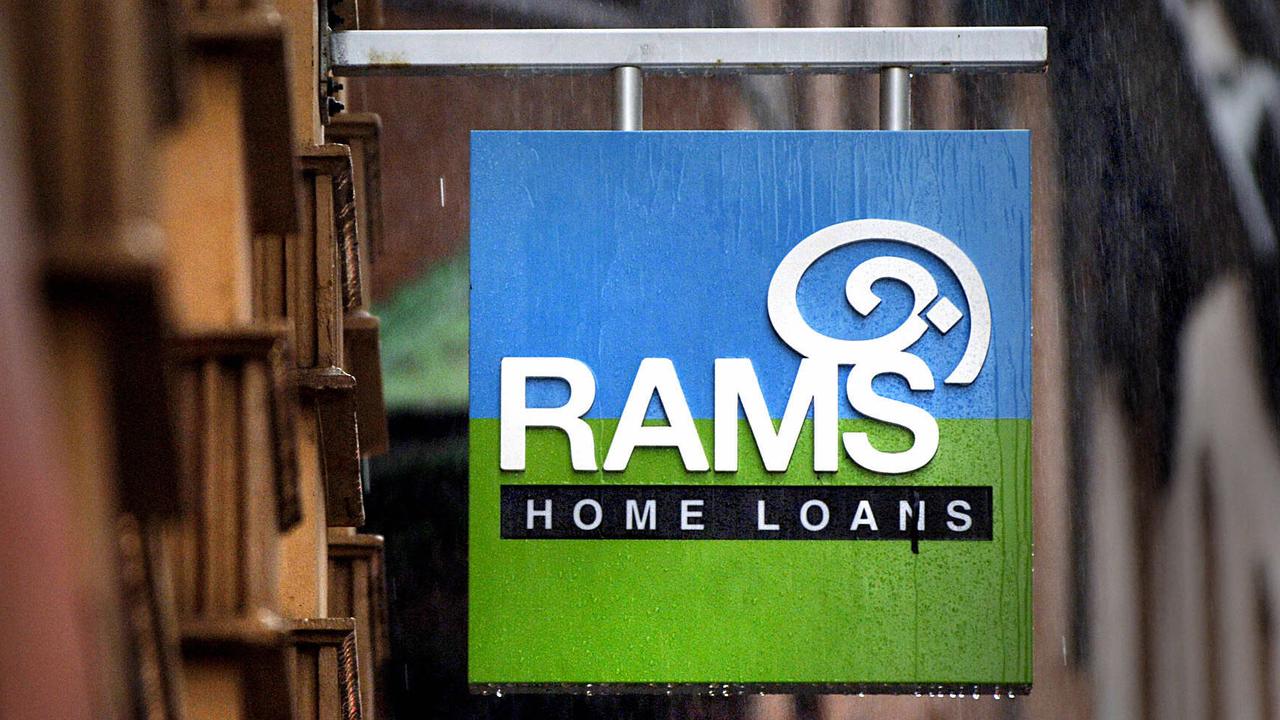Westpac CEO calls for stamp duty to be scrapped
Westpac’s boss has called for stamp duty to be scrapped as he warns against overly prescriptive regulation.

Westpac chief executive Brian Hartzer wants stamp duty to be scrapped and greater collaboration between business, government and regulators to help revive the nation’s economic growth.
Mr Hartzer says banking regulators have become “highly prescriptive” after the Hayne royal commission and were impeding the ability of banks to lend freely.
He wants state and federal governments to look beyond infrastructure spending to kick-start the economy, by getting business investment rising and cutting red tape.
“While government spending on infrastructure is helpful, in the long run it’s business investment that creates jobs and generates the salaries and earnings that deliver tax revenue to governments,” Mr Hartzer said in a speech to the Trans-Tasman Business Circle.
“Governments, regulators, the financial sector and businesses themselves need to work together to rekindle confidence and fire up the ambition of business leaders to invest in the growth opportunities of the next decade. Recently this collaboration has not been as strong as it needs to be.”
Mr Hartzer said that despite the country’s long-running GDP growth, business investment as a share of GDP had declined substantially from the mining boom highs to its lowest level in 15 years.
Business customers are telling the bank “bottlenecks in the system” are holding back investment.
On the housing market, Mr Hartzer said that while the outlook for Sydney and Melbourne had improved, it had not translated into growth, with stamp duty slowing the “efficient allocation” of housing.
“The big upfront cost of buying a home — particularly stamp duty — is both a barrier for buyers and a disincentive for people to sell a home that’s bigger than they need, since they would then incur their own stamp duty when they move,” he said.
“Replacing stamp duty on purchases with a broad-based land tax would fix this and provide governments with stable revenue. As radical as that sounds, the ACT has been rolling out a package of reforms since 2012 in which it’s phasing out a bunch of duties over 20 years in favour of a single land value levy.”
Since last year’s royal commission, regulators have attempted to beef up their enforcement efforts in the banking sector, after they were criticised for not taking a hard-line approach. Mr Hartzer said that while he accepted that the errors and conduct highlighted by the royal commission had to be fixed, regulation was swinging too far. It was having unintended consequences, including curtailing the free flow of credit.
“Highly prescriptive, micro-prudential regulation reduces lenders’ ability to exercise judgment in helping customers reach their aspirations. The environment, and banks’ responses to today’s highly prescriptive rules, creates a real issue for the future.”

Mr Hartzer cited the example of Kerry Stokes, a Westpac customer, and said even he may not receive a loan in today’s environment, compared to decades ago when he was ramping up his business interests, due to the clampdown on responsible lending rules.
Westpac is waiting on a Federal Court decision in its battle with the Australian Securities & Investments Commission on the bank’s interpretation of responsible lending laws.
“We disagree with the interpretation of what the law requires,” Mr Hartzer said, adding that a “grey area” had emerged as the prudential regulator and complaints bodies were also weighing in on responsible lending.
Mr Hartzer said a record low official cash rate was problematic for depositors and made the earnings climate “incredibly challenging” for banks.
“It’s not a great sign for the economy, as I said. I still think there is an overall level of resource sales … unemployment is still relatively low, the government has huge capacity to spend on infrastructure.
“On average we will be OK … but that’s why it’s important for us to avoid going over that cliff and make sure we restore some confidence and get people investing.”
Mr Hartzer hit out at proposed tougher capital requirements in New Zealand and said more bank regulatory alignment was needed, given the “unbreakable” ties.
Westpac also used the speech to announce a new digital unsecured lending service for small business, where it is making an extra $10 billion available.




To join the conversation, please log in. Don't have an account? Register
Join the conversation, you are commenting as Logout